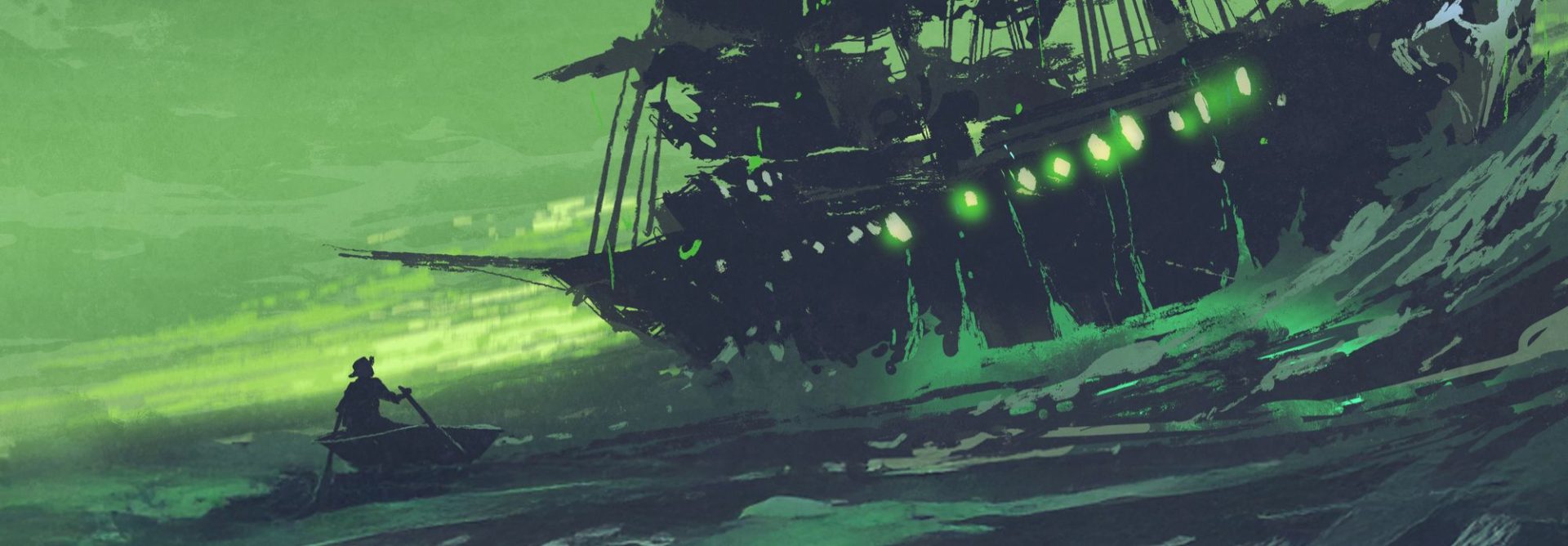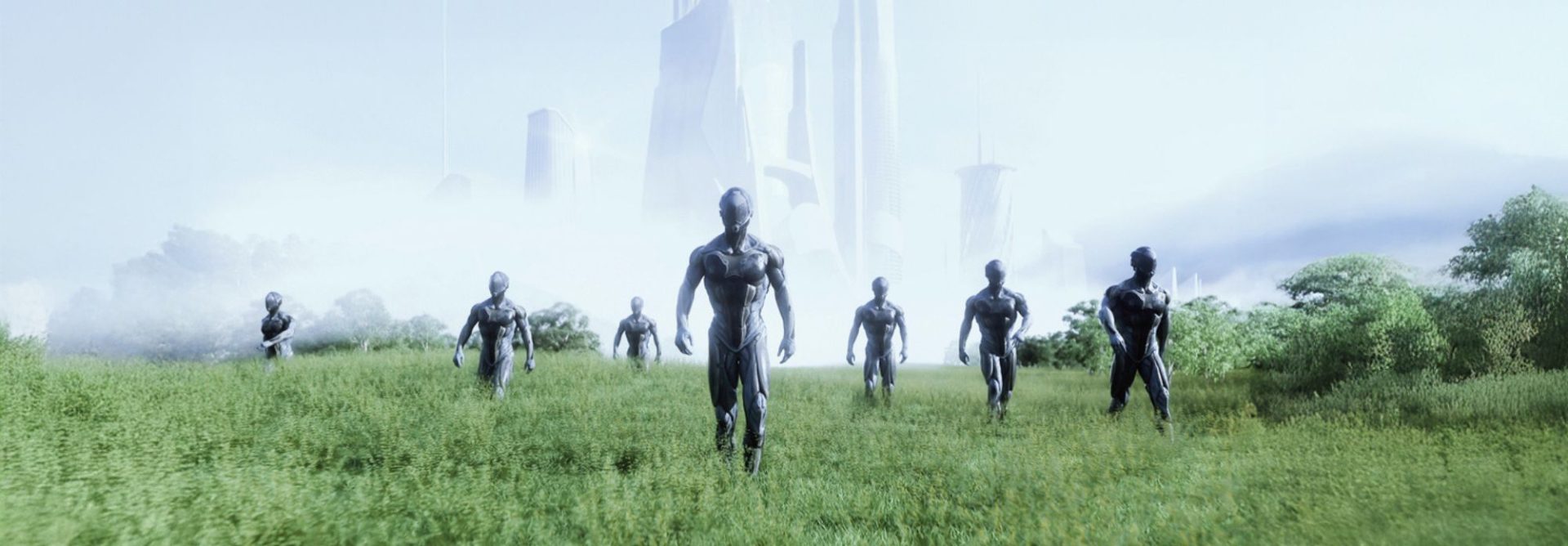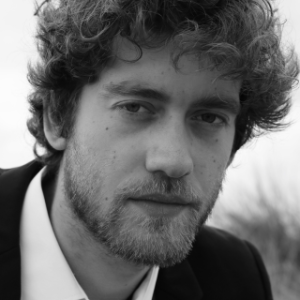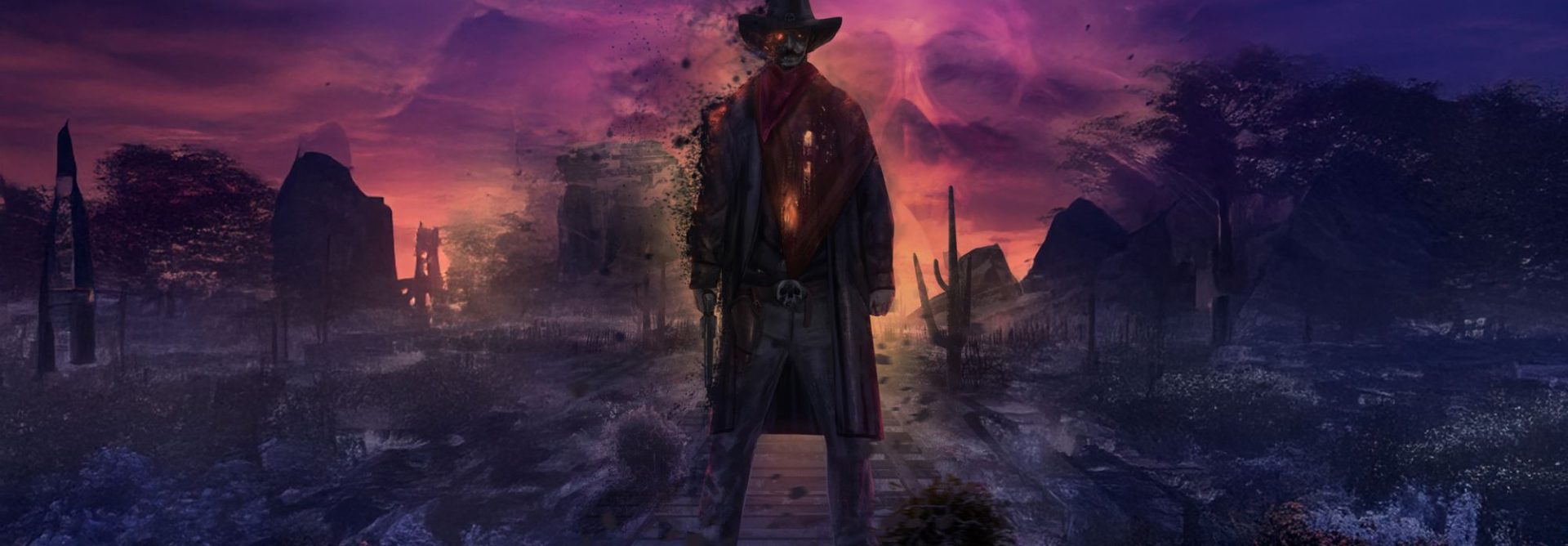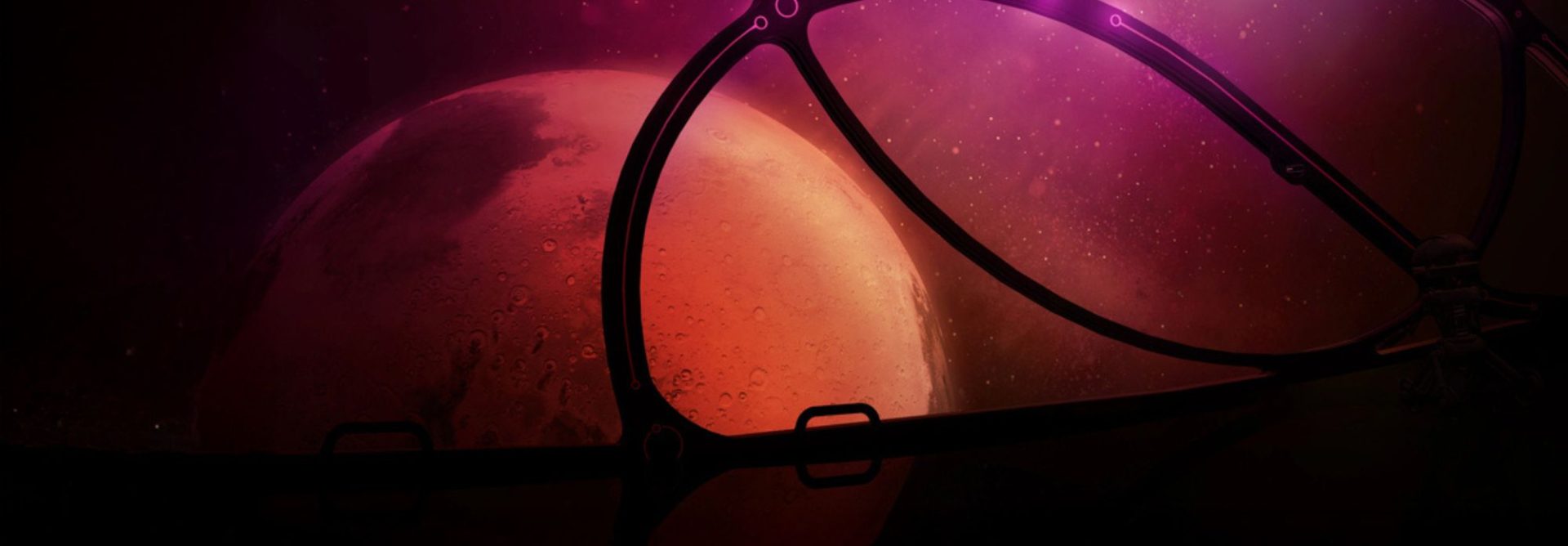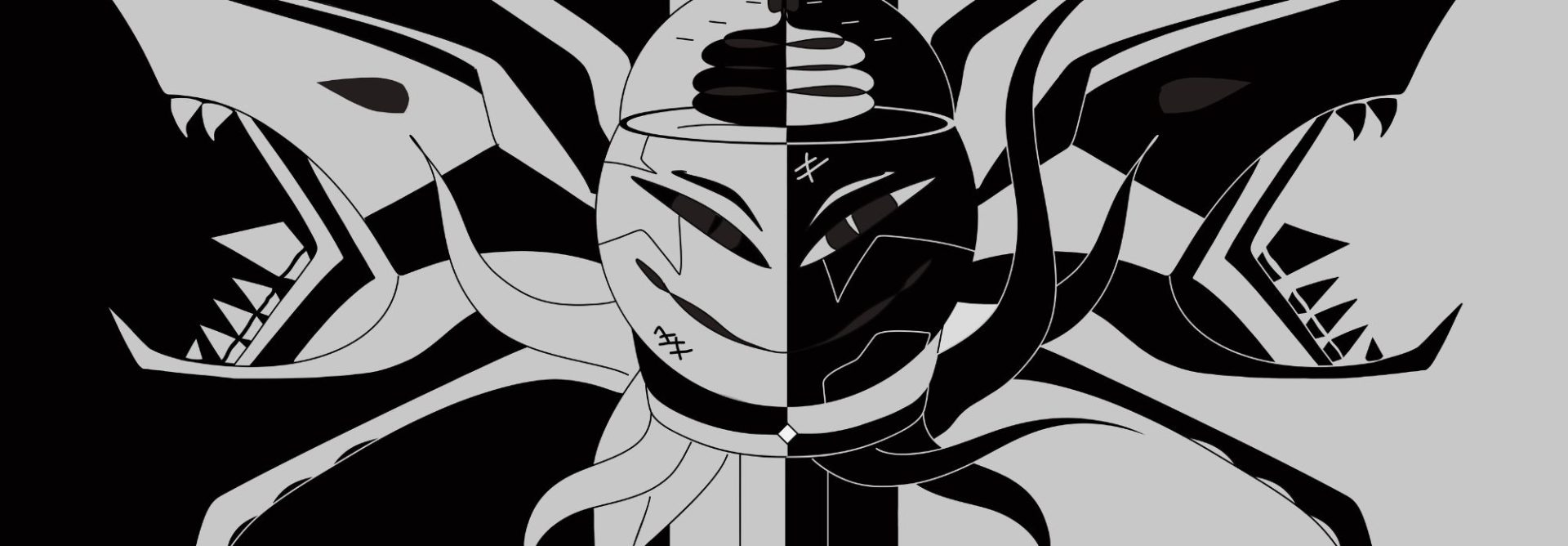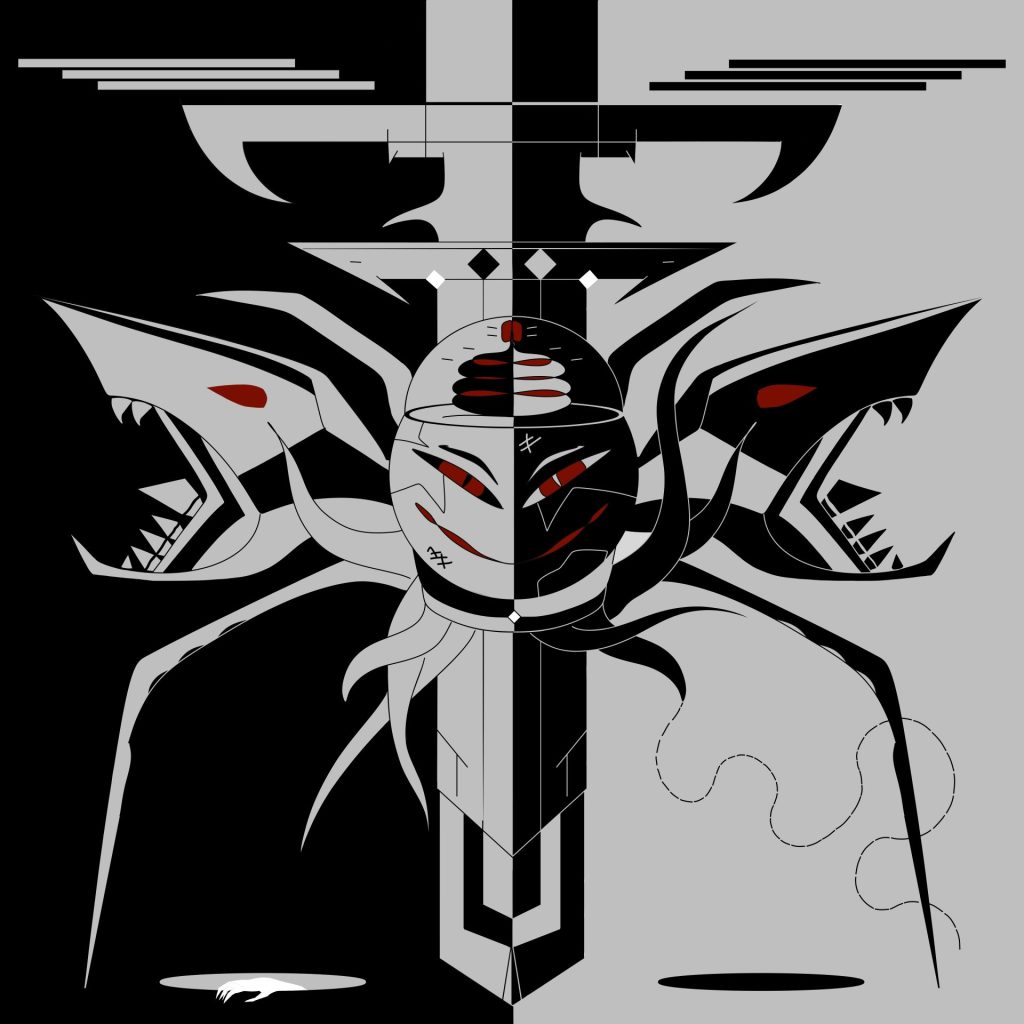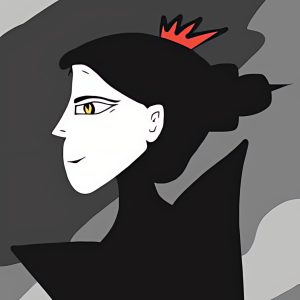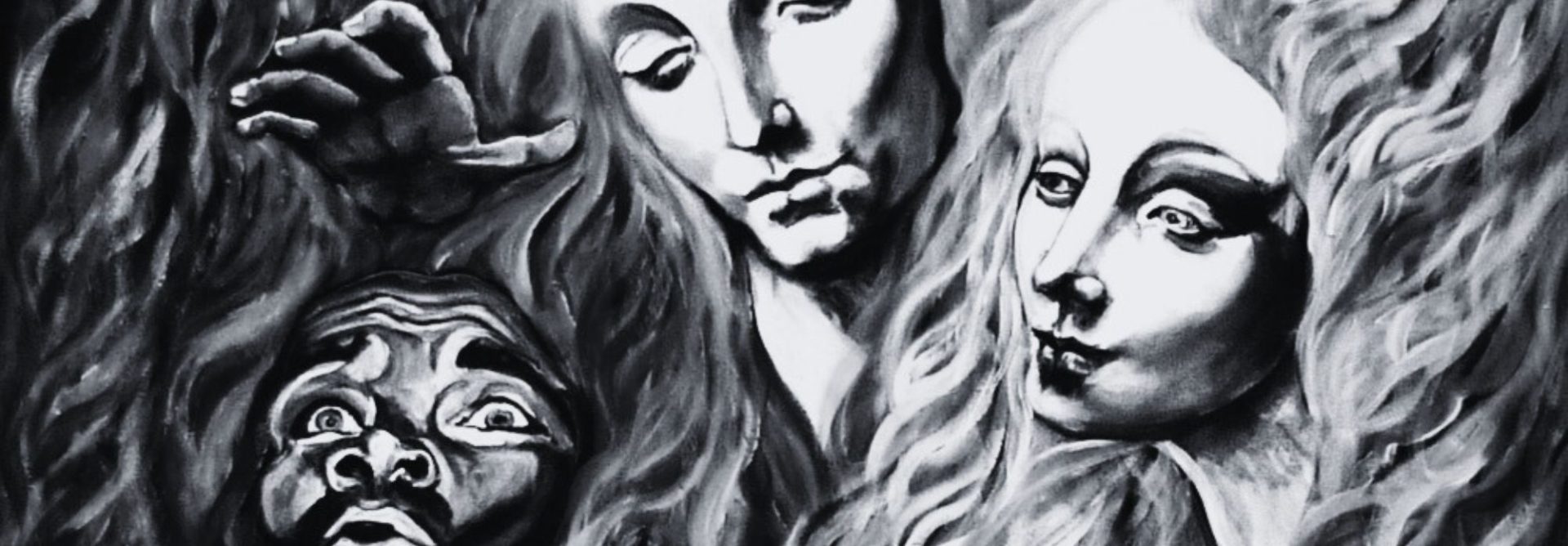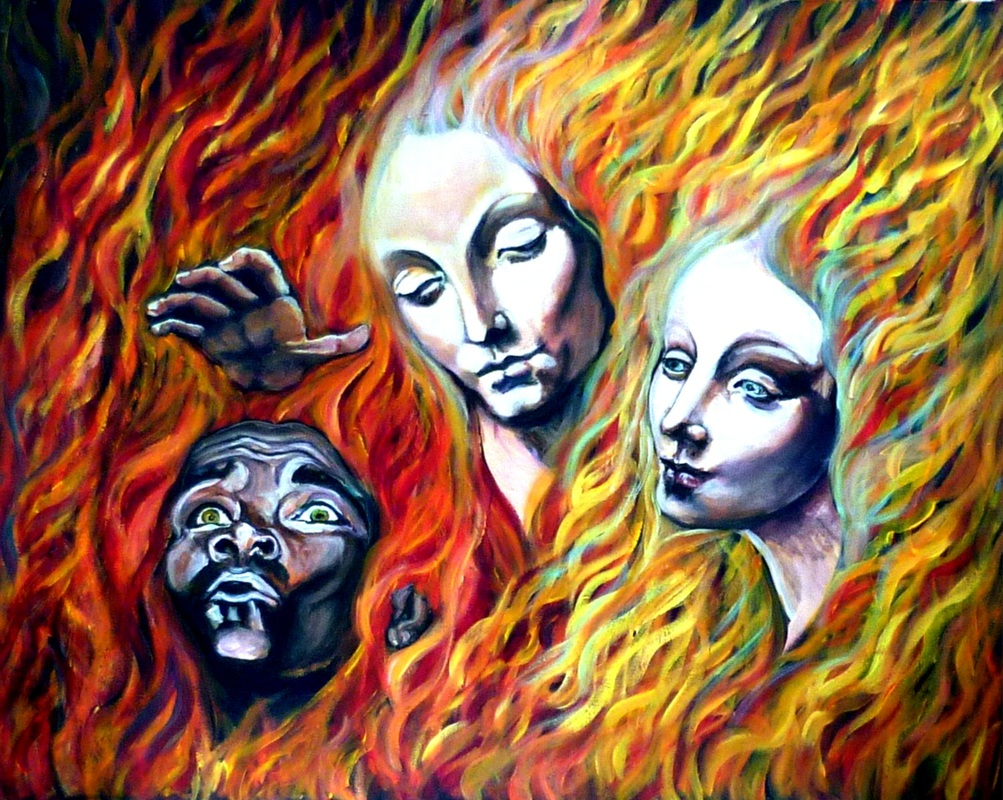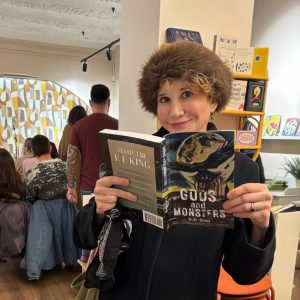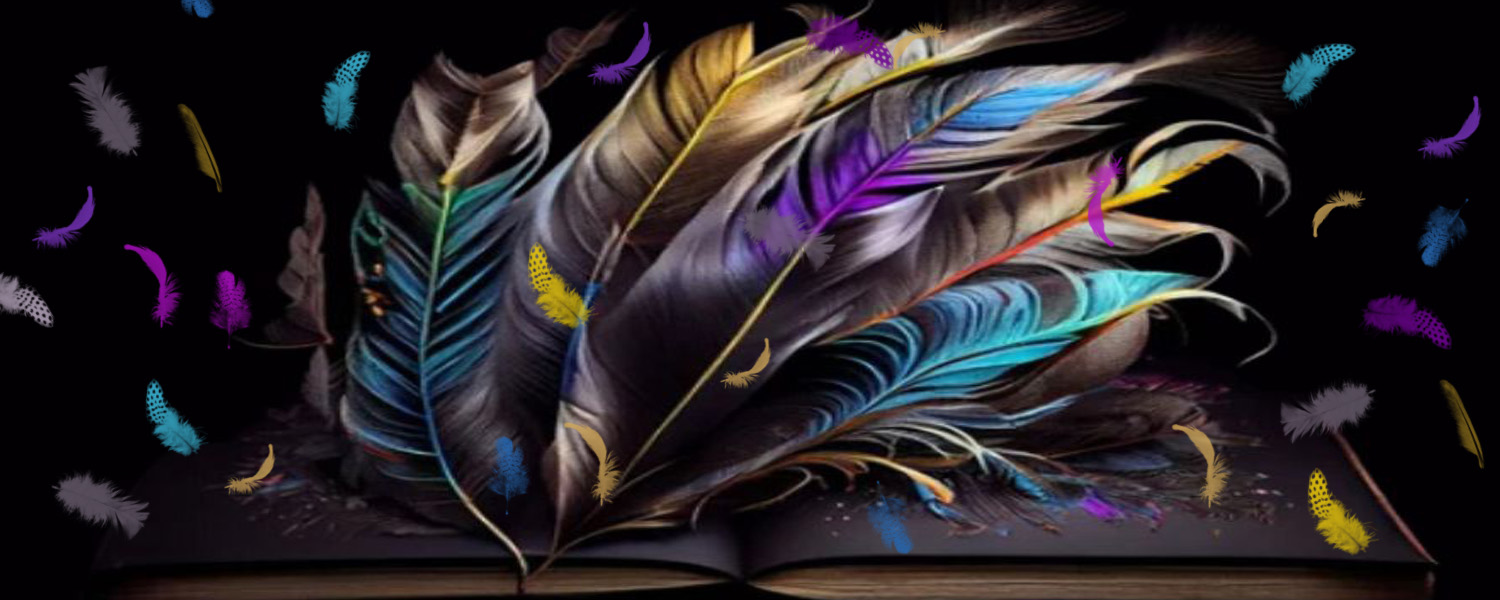Thomasina awoke sluggishly. When did I even go to sleep? Confused and disoriented, she found herself clothed in her breeches and boots, her upper body bare.
“Captain Collins. Come see, quickly!” The incessant shouts and the rapping on her door had dragged her from the depths of slumber. Thomasina rubbed her eyes, climbed from her hammock, and headed to the coat rack near the cabin door.
“Out in a minute. Keep your head,” she called.
The voice sounded like First Mate Gideon—a good man, if a bit of a nervous ninny at times. She pulled on her wool coat, fastened it tightly, considered her belt and sword but left them rocking on the coat rack.
When she pulled the door open, a thick mist rolled in, making her cough.
As she had thought, it was Gideon. “On the main deck, come see!” he said.
“Damn,” Thomasina muttered, clearing her throat as she strode past Gideon’s nebulous form.
The mist was everywhere, smothering the deck. She strode forward, descended from the quarterdeck, and noted a large, dark shape on the main deck’s starboard side. It resolved into her crew—many of them at least—abandoning their duties to stare at… what?
“Curse you all for lolling about. What the—”
A smell reached her nostrils: horrid, ugly, sick. It reminded her of a dead devil fish she’d encountered once, rotting on Kingsport beach. Had her men gathered to stare at a fish, rotting in the water?
As she neared the starboard gunwale, Thomasina heard nervous mutterings and saw hazy faces turning to her.
“Captain, Captain,” Gideon implored behind her. “Don’t be mad—just look.”
His words fueled her anger, but curiosity grew despite the reek. What are they looking at?
She reached the starboard side and placed her hands on the cold wood of the gunwale. The sea beyond was shrouded in mist, as were the horizon and sky. They could have been floating in the clouds if not for the gentle rocking of The Saucy Nancy beneath her boots. The chill from the gunwale ran up her hands, into her arms. It was obscenely cold. The voices around her were muffled by the fog.
In all her time sailing the seas, Thomasina had never witnessed a fog so thick. It dampened her hair; droplets of moisture formed on her forehead, reaching her brows to drip down her face.
“This is not natural,” she said—then the mist parted.
“Oh my God.”
“You see, Captain—they are all around us!”
Gideon appeared at her side. Usually, Thomasina disliked the proximity of others. This time, it was a comfort.
The ocean was invisible for the most part, concealed by the huge objects floating on the surface. They sourced the stink. How many were there?
It was impossible to tell. Bigger than whales, the mishappen, oily-black abominations were covered in blinking eyes and twisting, eel-like tentacles. Blowholes pulsed and spat brine. Bulging sphincters released nauseous-looking clouds.
Worse—far worse than the staring eyes—were the long, deep lacerations on their slick flesh. Each filled with jagged, misshapen teeth, white as bone and as long as a man’s arm: mouths formed where wounds should be.
“They’re leagues around us, Captain. As far as the eye can see. We—”
She ignored Gideon’s voice. One of the mouths twitched—then opened wider, forming an obscene parody of a smile.
The sound it issued was a monstrous, ungodly moan—yet somehow, words came clearly to her ears.
“Thomasina.”
Oh God. She flinched awake. Thomasina had fallen asleep at the wheel, her head and upper body slumped against its moisture-slicked surface. She straightened and pulled her hands free.
Falling asleep at her post. She’d have flogged a man for less. Thomasina wiped her hands on her wool coat and retook the wheel.
The nightmare though… it wasn’t far from the reality surrounding her ship. Mist flanked The Nancy on every side, and had for two days now.
It brought shame to a captain, to be this lost at sea. But, without the horizon or the sky to guide them, they were blind in this cloying, ever-present fog.
Their compasses were dead. The stars, when they peeked through the mist disappeared so quickly, they did nothing but taunt her and her crew.
The sky, she thought, and called up to her man posted in the foremast’s crow’s nest.
“Black Bob, you spy anything out there?” Her voice echoed across the deck, rebounding off the mist.
“Nothing, Captain,” the man called back. “Nothing but the white.”
The crew will think we’re cursed. She shook her head and turned to examine the dark shadows shifting across the quarterdeck.
“Helmsman Jonas? You there to take the wheel?” Beyond the pole-mounted telescopes on port and starboard, a shape stirred in the darkness.
Jonas shuffled forward. His face, small and pale, rose above the collar of his thick coat. His Monmouth cap was pulled low over his forehead.
“Sorry, Captain. Nodded off a little.”
Jonas was an old friend—he’d been at her side since the death of the previous Captain Collins, her husband. If the crew ever decided she was unfit to lead, took a vote to oust her, he’d still be her man.
“Just going for a walk, Jonas. Keep your eyes clear.”
Thomasina stepped around the wheel, reached the stairs to the main deck, and descended.
Her destination was the forecastle, where the two prisoners were kept.
Everything had been fine—until they came aboard. As she walked, Thomasina recalled the day they’d raided that ship.
They’d boarded after tossing stinkpots onto the deck, meant to confuse and incapacitate the enemy. Her men had set about killing some of the enemy just to curtail any rebellion. She shuddered.
Those gray-faced, hunched men hadn’t uttered a word during the attack—no cries of terror, no begging for mercy. It had felt ill-fated from the start.
And the ship’s hold? A cursed place—waterlogged up to the ankles. Barrels of rotting fish lined the space; large, purple worms had squirmed inside their guts.
Huge albino crabs wandered that hold, clacking their claws as they peered at her from the shadows.
She stepped around the ship’s longboat. The forecastle door lay just beyond.
Her two guests were there: dragged from their captain’s cabin along with a chest of the strangest jewelry Thomasina had ever seen.
They should have sunk that ship—had cannons broadside its rotting bulk into the ocean. The only other loot—a few weapons and rusty tools—hardly seemed worth the effort.
The water stores were foul, the fish rotting. And what ship set sail without a single cask of alcohol?
As she neared the forecastle, she spotted a crewmember stationed at the door. For a moment, Thomasina forgot who she’d placed there.
The man coughed loudly, a wet, painful sound. William Bell—she remembered now—had been suffering badly from the damp fog.
“William, go below. Get some sleep. Take a flask of wine if you fancy it—and wake Samuel to take over your shift.”
Bell crouched, almost doubled over. He rose unsteadily when she paused before him.
His face was a mass of wrinkles; his smile revealed a ruin of broken teeth.
“Captain?” He leaned close, voice low and conspiratorial.
She smelled alcohol on his breath—something she tolerated while they remained trapped in the fog.
“Yes, William?” Their faces were close now—so close she could see the glint in his bright blue eyes.
“I’ve been hearing things. From inside the forecastle. Sounded like chanting, or singing—maybe worse. I think I heard congress.”
“Congress?” she repeated, not quite sure what he meant.
“Fucking, Captain,” he said—so close his hot breath touched her cheek. “Sinful things. I swear by God.”
Thomasina scowled. “They’re brother and sister!” The mere thought curdled her stomach. She backed from Bell.
“Go. Do what I said—and tell no one. You hear me? I’ll have you flogged if you breathe a word of this.”
“But…” His voice was a whine.
“Go, William Bell. Get some sleep. Forget what you think you heard.”
“Captain,” he murmured, then loped off into the mist. She briefly watched him, then turned to the door.
Blasphemous. Disgusting. She’d heard of such aristocratic filth before—but never between brother and sister. If the crew discovered this… they’d think God’s wrath had placed them in this limbo of damp fog. They’d want blood. And if she did not let them? Her position as captain might become precarious.
Thomasina hammered on the door. “Captain coming in,” she announced. She reached into her coat and drew out the key.
Apprehensive now, she found the keyhole, slid in the key, and turned it. Her unease grew as she stepped inside—a cabin illuminated by dull light.
Her eyes squinted as she scanned the room. What was she expecting? Fornication?
The brother, Archibald, lay asleep on a hammock strung between two wooden beams. To his right, Abitha sat at a table; her own hammock hung nearby, stretched between the table and a wooden beam.
She wore a long, flowery gown with a blue jacket over that, a white coif covering her jet-black hair. Her brother had on blue breeches, a green jerkin, and doublet. His shoes and socks were missing, his skinny legs pale in the candlelight.
Thomasina had interrupted Abitha reading from a small, blue velvet-bound book. The girl closed it and looked up, her large green eyes as innocent as her expression.
Thomasina slammed the door shut and Archibald groaned in his sleep.
There was nothing insidious here. If they had been copulating, then where—against the table like rutting beasts?
Abitha’s gaze turned curious. Thomasina strode forward.
“Enjoying your accommodations?” she asked, halting at the center of the cabin.
Archibald and Abitha Waite. Two members of a wealthy Innsmouth family. Their ship had sailed from that damned town and, by rumor, spent some time in the South Seas. Had Thomasina known it was an Innsmouth ship, she might have left it alone. Too late now.
The pair were twins: eyes set a little too far apart, the matching moles on their left cheeks. Still, the girl was a beauty—at least in Thomasina’s eyes.
“I don’t believe I have an option concerning my accommodations.” Abitha said in a quiet, childlike voice. She eyed Thomasina up and down condescendingly. “And your question is undoubtedly a rhetorical one.”
This threw Thomasina off a little. Prisoners should show some fear—even the privileged who knew their safety was guaranteed once their ransom was paid.
“What are you reading?” Thomasina asked, resisting the sudden urge to stride forward and slap the girl across the face.
“Oh, I’m reading prayers. Prayers my church taught us. The Esoteric Order of Dagon.”
Thomasina knew the name. Based exclusively in Innsmouth, it gave prayers to the ocean in a far from God-fearing manner. The church was wealthy, however. The gold they’d looted from the twins’ ship proved that.
“Would you like to pray with me?” Abitha asked, her voice and expression filled with disdain.
Thomasina fought violence again. Drag the little bitch out and spank her on the deck.
Archibald groaned and muttered in his sleep.
Thomasina and Abitha both turned to stare at him.
“Seasickness,” Abitha said with a sigh. “Such a failure for an Innsmouth man.”
“Your people,” Thomasina said, turning back to the girl. “will pay heavily for your safe return.”
Abitha grinned, revealing a mouth of small, gray, decaying teeth. “My future husband will deal with this personally, I assure you.” A small chortle left Abitha’s lips. “How are your dreams, Captain Collins?”
Thomasina felt her face redden. She went to step forward. Instead, she changed her mind and left the cabin.
***
The encounter with Abitha had unnerved Thomasina more than she cared to admit.
Having returned to her cabin with a cloud hovering over her—thicker and darker than the ever-present fog—she had left Helmsman Jonas at the wheel. Capable hands. Capable man, she thought as she strode around her cabin, the floorboards creaking at her every step.
She cursed Innsmouth with every step—cursed her luck at encountering one of its ships.
Her ship, The Saucy Nancy, prowled the length and breadth of the New England coast hunting for plunder—where they’d encountered the ship with no flag and no name, bound for Innsmouth.
“Damn them to hell.”
Thomasina felt happier after the outburst.
Not only that, she’d caught sight of the small chest beneath her dresser. She knelt beside the dresser and pulled the chest out.
It had a musty, decaying odor to it. Tiny splinters came off in her hand at the touch. The iron ribs bracing the chest were spotted with orange, flaking rust. It creaked loudly as she opened it, releasing more rotten musk.
Thomasina smiled at the contents—lustrous gold ingots, coins with fish stamped on their faces… The chest’s jewelry, the ruby and emerald studded bracelets and tiaras, bore delicate yet hideous sea monster motifs. These reminded her of her nightmare, but she did not let it ruin her mood. There was a fortune of gold and jewels here, one she would sell as soon as they escaped the fog and reached the comfort of dry land.
She pressed her hands into the hoard, felt the gold and jewels tingle against her skin. She pulled free a tiara, lifting it so the gold sparkled in the lamplight—three ruby eyes glinting like blood. The tiara’s front section was shaped like a mass of twisted devilfish tentacles. Such a queer size though, this crown, far too small for her head at least. Yet she wanted to place it atop her head. She fought the urge and dropped it back into the chest. She stood then and kicked the chest back under the dresser.
It was worth it, she told herself, yet didn’t feel convinced.
If only the fog would lift. If only they had stars to steer by.
Thomasina walked to her coat rack, unbuckled her belt, removed her coat and hat, and hung them up. Then, she pulled her boots off and climbed into her hammock.
Perhaps rest would ease her mood.


